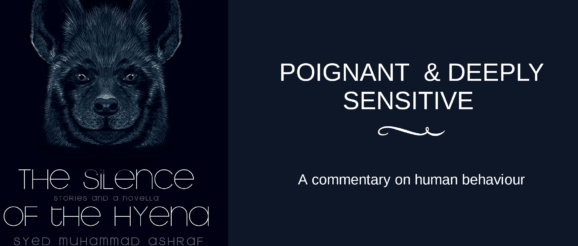Syed Muhammad Ashraf’s ‘The Silence of the Hyena’ Is a Commentary on the Wild Side of Human Behaviour – The Seer

Animal fiction is an intriguing genre in literature especially the ones that are written for adults. Be it Orwell’s Animal Farm or Perumal Murugan’s Poonachi, these works do not merely stay as works of fiction. They, instead, go on to serve as a commentary on society and its ironies. Syed Muhammad Ashraf’s ‘The Silence of the Hyena’ is one such commentary on human behaviour. Written originally in Urdu, the book is a collection of short stories and a novella translated by M.Asaduddin and Musharaff Ali Farooqi.
Syed is one of the most prolific contemporary Urdu writers and also a Sahitya Akademi award winner. His works are known to be a poignant portrayal of the marginalized. ‘The Silence of the Hyena’ is no different and bears testimony to the pathos and deep sensitivity that his works carry. Interestingly all the animals in these stories are ‘wild’ and therefore, a sense of impending danger prevails over most of the stories. For instance, in the story title ‘Rogue’, where three men go out to hunt a rogue elephant on a winter night, you can almost feel a chill in your spine.
Happening at the edge of a forest, these stories, on one hand, depicts a day in the lives of people and their encounter with the wild beings. However, the symbolism in most of the stories is too hard to miss, especially the ones with the Hyena. Real horror begins when the difference between man and animal blurs and you can’t say who is who. In the story, ‘ And then laughed The Hyena’ when everyone in the family walks with a ‘chat-chat’ just like the hyenas, you are thrown into a world of eerie surprise and you end up reading it again to ensure you are not delusional.
‘Death of an Antelope’ and ‘The Vulture’ sound more like fables. While the plots of these stories are quite obvious and they lack the usual layers that exist in all the other ones, they are still enjoyable. They give you a break from all allegories and metaphors. Nevertheless, these too keep you brooding. The stories, ‘The Silence of the Hyena’ and ‘The Last Turn’ are intricately layered in their narration and divulge the hypocrisies in human behaviour. However, my favourite one among the short stories is ‘Separated from the Flock’. A heart-wrenching tale based on the Indo-Pakistan partition in 1947, it talks about the trauma of separation, the grief of the migrated, their broken wings and homelessness.
The last part of the book is the Novella ‘Beast’ – the story of village administrator Thakur Udal Singh and his wild bull Neela. A critique of the oppression of the marginalized and organized crime, this feels a little too stretched in places. The similarities between Thakur and Neela are anything but uncanny and their end seems befitting. But too much is lost before the end arrives, thanks to the terrorizing duo.
While the animals and more so the humans from the stories instil fear in you, Syed offers you some respite in the form of nature. Since all the stories are based on a rural setup, Syed makes sure you walk through the sugarcane fields, watch the sunset, and wake up to a frozen lake. While I will never know how the original work in Urdu sounds, the translated prose certainly reads beautifully. If you are ready for some pondering and re-reading until you find all the answers, this is the book for you. And did I mention that I loved the cover of the book too?
